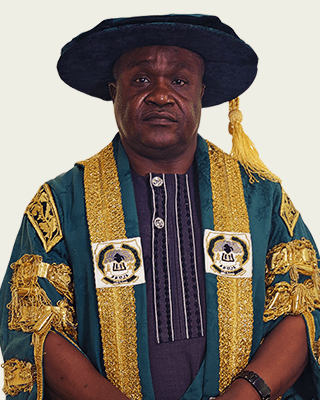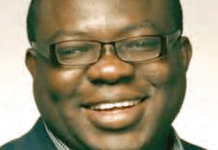
In the annals of pharmaceutical and scientific research in Nigeria, very few luminaries have recorded such ground-breaking achievements as Professor Michael Umale Adikwu. Indeed, anyone who has closely monitored his exploits from his university days to date cannot but conclude that he is, so far, the victor ludorum of pharmacy scholarship in the country.
A paragon of profound intellect and prolific ingenuity, Adikwu has not only redefined the boundaries of pharmaceutical research but also elevated Nigeria’s global standing in this vital discipline. His journey, marked by an unwavering commitment to research, education, innovation and administration, serves as a monumental testimonial of what can be achieved through passionate pursuit and commitment to excellence.
To begin with, Adikwu holds the remarkable record of being the youngest pharmacist to achieve professorship in Nigeria at just 35 years of age – a feat he could have achieved even earlier! Beyond this, however, as each letter of his name rightly suggests, Adikwu is an Accomplished pharmaceutical scientist, a Distinguished academic, an Illustrious innovator, a Kinetic instructor, a Wonderful administrator and an Unstoppable highflier.
Accomplished pharmaceutical scientist
Born on April 19, 1963, Adikwu’s path to becoming a revolutionary scientist was shaped from his younger years. Growing up in a village, he often fetched roots of Alchornea cordifolia (Christmas bush) for his mother to treat his siblings’ malaria. This experience, coupled with his fascination with the natural world, inspired his passion for transforming everyday materials into potential medicinal compounds.
“I was a village boy and very playful, and I thought some of those things that I used to play with could easily be converted to drugs,” he recalls. This early interest laid the foundation for his trailblazing accomplishments in pharmaceutical sciences.
From a humble start at St. Paul’s Roman Catholic Primary School, in Benue State, to Federal Government College, in Jos, Adikwu showed a strong penchant for excellence. He pursued his passion for pharmaceutical sciences at the University of Nigeria, Nsukka, graduating in 1986. Since then, he has consistently expanded the frontiers of pharmaceutical science and education.
Adikwu’s pioneering work in raw materials utilisation and sustainability has been significant. His research has also explored genetic engineering, lymphocyte hybridoma, taste-masking of chloroquine through microencapsulation, pharmaceutical microbiology, and, most notably, the beneficial effects of snail and slug mucin.
He has been invited to overseas laboratories thrice: first as an Alexander von Humboldt Fellow in Germany (1999-2000), second as a Matsumae Fellow in Japan (2002), and third as a Royal Society Fellow in Manchester, United Kingdom (2006). He has also received international grants from the Royal Society of Chemistry of Great Britain (2002), the Third World Academy of Sciences, Italy (2004), and the International Foundation for Science, Sweden (2004). Locally, he has received grants from the National Institute for Pharmaceutical Research and Development (NIPRD), Abuja, and the Wellcome Nigeria Trust, Lagos.
In 2007, Adikwu was appointed the national coordinator of Science and Technology Education Post Basic (STEP-B), a project aimed at improving post-basic and higher education in Nigeria through the World Bank IDA system. Under this project, eleven Centers of Excellence emerged based on various national needs.
Distinguished academic
Adikwu’s journey as a distinguished scholar is nothing short of remarkable. Upon graduating with B.Pharm in 1986, his passion for research, ignited during his undergraduate project on genetic engineering, motivated him to pursue a career in academia. He began his postgraduate studies at UNN, focusing on the taste-masking of chloroquine through microencapsulation, under the guidance of his Indian supervisor. Despite balancing his internship and National Youth Service Corps in Kwara State, he completed his master’s degree practical work and later defended his thesis.
After a stint at the University of Jos, he returned to Nsukka and fully immersed himself in academic work. His innovative study on the Essential Drugs List Decree and its impact on drug formulations garnered international attention, with his article published in The Lancet. This publication significantly advanced his academic career, leading to his rapid promotion to senior lecturer, surpassing his seniors in less than three years.
Three years later, with over 41 research papers, Adikwu applied for professorship but was initially denied due to internal university conflicts. Undeterred, he applied again in 1998 with 61 papers and was eventually promoted to professor, setting an unbeaten record. Adikwu has since mentored numerous postgraduate students, eight of whom are now professors of pharmacy in various universities. His commitment to academic excellence is reflected in his prolific research output, with over 270 publications that have earned him local and international recognition. His contributions have enriched the academic community and have had a lasting impact on pharmaceutical education in Nigeria and beyond.
Illustrious innovator
Adikwu has distinguished himself among his contemporaries by ensuring that his research efforts do not end “on paper.” His innovative spirit, driven by childhood curiosity about natural remedies, has led to pioneering pharmaceutical breakthroughs. Among these are his wound healing devices (formulations) based on snail mucin research. This research earned him the prestigious NLNG Nigeria Prize for Science in 2006. The annual prize, awarded for excellence in scientific breakthroughs, is Nigeria’s highest scientific award, and Adikwu was the first scientist to win it singlehandedly. He outperformed nine other contestants who submitted works in fields such as Physics, Veterinary Clinical Virology, Quantity Surveying, Mathematics, and Agriculture.
According to the award organisers, Adikwu’s work, titled “Wound Healing Devices (Formulations) Containing Snail Mucin,” was “a significant contribution to drug formulation and drug delivery systems that would promote the potentials of local materials in the formulation of drugs.” Specifically, the work established that snail biopolymer mucin can be made into various pharmaceutical formulations such as ointments, creams, gels, and films for wound healing, as well as antibacterial, antifungal, and antiviral treatments. Tests on his products on rats and rabbits showed no serious allergic or toxic effects.
Kinetic instructor
As an educator, Adikwu has consistently impacted his students’ lives in tremendous ways. His dynamic teaching methods and dedication to fostering critical thinking have helped him nurture a new generation of pharmacists and researchers, many of whom have become celebrated scholars and giants of industry. He once jokingly referred to himself as the “grandfather of professors”.
Moreover, Adikwu’s passion for all-around intellectual empowerment has led him to advocate for a research foundation to bring postdoctoral fellows from around the world to Nigeria. He believes this is a crucial factor in helping advanced countries with their research and development.
Wonderful administrator
In 2014, Professor Adikwu was selected from a pool of 124 candidates to become the vice-chancellor of the University of Abuja. At the time of his appointment, the university, described by a former minister of education as “a systemic failure,” ranked 105th in Nigeria. Under Adikwu’s exceptional leadership, the university experienced significant growth and development in every aspect. He ensured that all faculties, except one, moved to the main campus and that all programmes received accreditation.
His ability to foster a harmonious environment among staff and students, coupled with his strategic partnerships with international universities and organisations, transformed the institution, which had risen to the 9th position by the time he left in 2019.
Unstoppable highflier
Given his unparalleled achievements as a scientist, educator, and administrator, it is no surprise that Adikwu’s career has been adorned with numerous accolades and recognitions. Besides his historic Prize for Science, he has received the May and Baker Prize for Excellence in the Practice of Pharmacy (2009) and the World Academy of Science Prize for the Development of Materials for Use in Science and Technology (2019), among others.
Despite his numerous achievements and accolades, which have cemented his reputation as a global leader in scientific scholarship and set a benchmark for future generations, Professor Adikwu’s dedication and passion remain unwavering. He says, “My research interests have actually not changed. I see my research on snail mucin as incomplete and I am still looking at it very critically. I want to work on slugs and see how they can give indices that can be used to protect the environment.”










